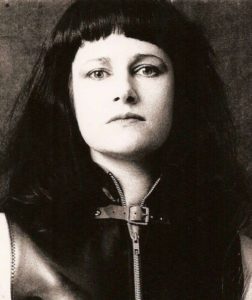 Most people who knew me when I was a rock journalist in the 80s would probably agree that I stood out. There weren’t that many women working for the music papers at that time – and certainly not women who wore bespoke black and red latex dresses accessorised with six-inch stilettos.
Most people who knew me when I was a rock journalist in the 80s would probably agree that I stood out. There weren’t that many women working for the music papers at that time – and certainly not women who wore bespoke black and red latex dresses accessorised with six-inch stilettos.
But despite my maverick beginnings, as I gained experience as a journalist I gradually became more sensible and practical.
By the time I started working for The Sunday Telegraph in the late 90s I could have been mistaken for an accountant. And the more responsibility I took on, the less creative I became and the more I blended into the background.
In fact, I went from being a well-known writer whose byline regularly featured in the papers to a management person who worked behind the scenes enabling other people to express themselves fully.
And later on, when I went freelance, I became an ‘invisible mender’ – editing other people’s work and making them look great but not getting any visible credit for it. I met so many talented editors who spent all their time complaining about the standard of writers’ work but never doing the work themselves.
I ended up feeling deadened and hollow so I knew I had to do something I could call my own.
So I decided to take three months off to write a book – or at least to start writing a book. And it made sense to make that book all about my adventures in rock journalism – a time when I felt I was at my creative peak.
I rented a cottage in Cornwall to start me off, and later stayed in a seafront apartment in Dorset for six weeks to allow my creative juices to flow. It felt so liberating to finally be doing my own thing rather than fixing other people’s things.
It took me five years to finish writing the book but, despite the best efforts of a literary agent, I wasn’t offered a publishing deal. But I have never regretted spending all that time on it. Even though my memoir never made it into print, it was a creative lifesaver for me.
I did go back to the invisible mending for a while – because it paid the bills – but it became my velvet-lined rut. However, embracing that passion project – and not being attached to the outcome – really helped me believe in myself and my creativity again.
When it did come to leaving journalism behind and doing my own thing for real – setting up my own story coaching practice as The Story Archaeologist – I understood the importance of not only standing out from the crowd but having faith in my uniqueness.
I don’t need to wear black and red latex any more to stand out – I do that by sharing the wisdom I’ve gained from a 40-year career as a writer and editor.
BOOM.
That’s a wonderful story Beverley. Sometimes it’s not so much what happens to the writing after, but the act of having done it that is the catalyst for change. Maybe one day your memoir will be self-published 😉
Thanks Chloe – I agree about the catalyst for change. The memoir may be published in some form, but probably not in its original version!
Beverley – I agree you should publish your book yourself via Amazon – people can’t get enough of rock journalists’ tales these days. I recently bought Allan Jones “Can’t Stand Up For Falling Down” which was tres amusant and interesting but I bet yours would be better. I’m happy to libel read it for you (Lisa will vouch for my bona fides), should it be, ahem on the racy side.
Hi Jane – thanks so much for your feedback and offer to libel read the book! It would definitely need that. I’ll contact you by email.
Just been reading an article on The Guardian website about Soft Cell’s top 10 releases and thought of you and consequently found this! Agree that your book should be opened up to a wider audience because you are unquestionably a fantastically gifted and fabulous writer, Ms Glick